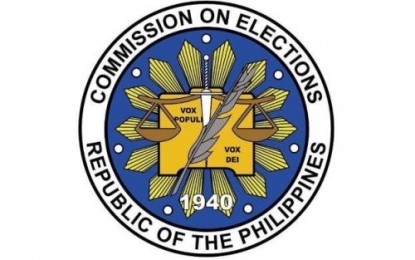Trust is supposed to be an essential element in an election.
You vote for a candidate that you trust will serve the country well. You vote for a candidate that you trust will not steal the people’s money. You vote for a candidate that you trust will help stop abuse and violations of the law.
You vote for a candidate that you trust will fulfill the promises they made during the elections.
Trust is what you have when you go to the polling place and cast your vote.
You trust that your vote will be counted.
You trust that the Commission on Elections will be competent to safeguard all the votes cast and the winners are really the ones that the people voted for.
Elections today, in general, are a far cry from the days of guns, goons, and gold that ruled the electoral exercise when even the “birds and the bees” were able to vote.
Philippine electoral history is filled with stories that make the country the Oriental version of the Wild, Wild West. Right off we can recall the image of then candidate Ramon Magsaysay carrying the bloodied corpse of his ardent supporter, Moises Padilla, who was tortured and killed by the men of his opponent, the incumbent governor Rafael Lacson, in Negros Occidental. The killing happened in 1951 but Magsaysay used the news clips in his campaign against the incumbent President Elpidio Quirino in the 1953 elections.
There was also the burning of the barangays Barangay Ora Centro and Ora Este in the town of Bantay, Ilocos Sur by Vincent Crisologo, son of then ruling politicians of Ilocos Sur. His father was Rep. Floro Crisologo and his mother was governor Carmeling Crisologo.
Crisologo burned the two barangays that were known to be predominantly for the political opponents of his parents. He was convicted for arson, got pardoned by President Marcos in the 1980s. He is now a congressman of Quezon City’s first district and is running for mayor. He was arrested yesterday allegedly for obstruction of justice when he stopped the police from arresting those engaged in vote buying.
The murder of former Antique governor Evelio Javier by men associated with Marcos loyalist Arturo Pacificador during the canvassing of votes of the fraud-marred 1986 snap elections between Marcos and Cory Aquino helped spark People Power revolution in February 1986 that ended the Marcos regime.
Post EDSA, Comelec gained credibility with the appointment by President Cory Aquino of respected civil society leaders like Christian Monsod and Haydee Yorac to the poll body.
Although there are still many who harbor doubts about the integrity of the Comelec, it can be said that the poll body has overcome the stigma of the massive cheating in the 2004 elections (remember the Hello Garci scandal that cast doubt on the mandate of Gloria Arroyo as president?).
Automated elections started in 2010 and it was credited for the elimination of the tampering of votes cast when figures in the certificates of canvass would not match with those in the elections returns, when the number of votes would exceed the number of registered voters and other blatant anomalous practices done with the cooperation of Comelec personnel.
In the 2010 elections that Benigno Aquino III won, the early concession of his closest rival, Manuel Villar, eased the tension and helped in boosting the credibility of the electoral exercise.
In the 2016 elections, Grace Poe conceded to the winner, Rodrigo Duterte six hours after the canvassing of the votes started.
Today’s election is the first national election under the Duterte administration. Almost 62 million Filipinos have registered to vote for a total of 18,060 positions – 12 senators; 239 members of the House of Representatives; 81 governors; 81 vice governors; 778 members of the Sangguniang Panlalawigan; 1,634 mayors; 1,634 vice mayors; 13,542 members of the city/municipal council and 59 party lists.
Elections is supposedly the engine of democracy because it is through their votes that the people decide who their leaders would be.
It’s a completely new game today with social media as a new battleground for winning the hearts and minds of the electorate. But then there’s still the old ways of vote buying. And he who has the gold rules.
To fully serve its purpose in a democracy, elections should not only be peaceful and credible but also be an effective way for the citizens to choose persons of integrity and capability to lead the country.
We pray that today’s election affirm our trust in its role in strengthening democracy.

Be First to Comment